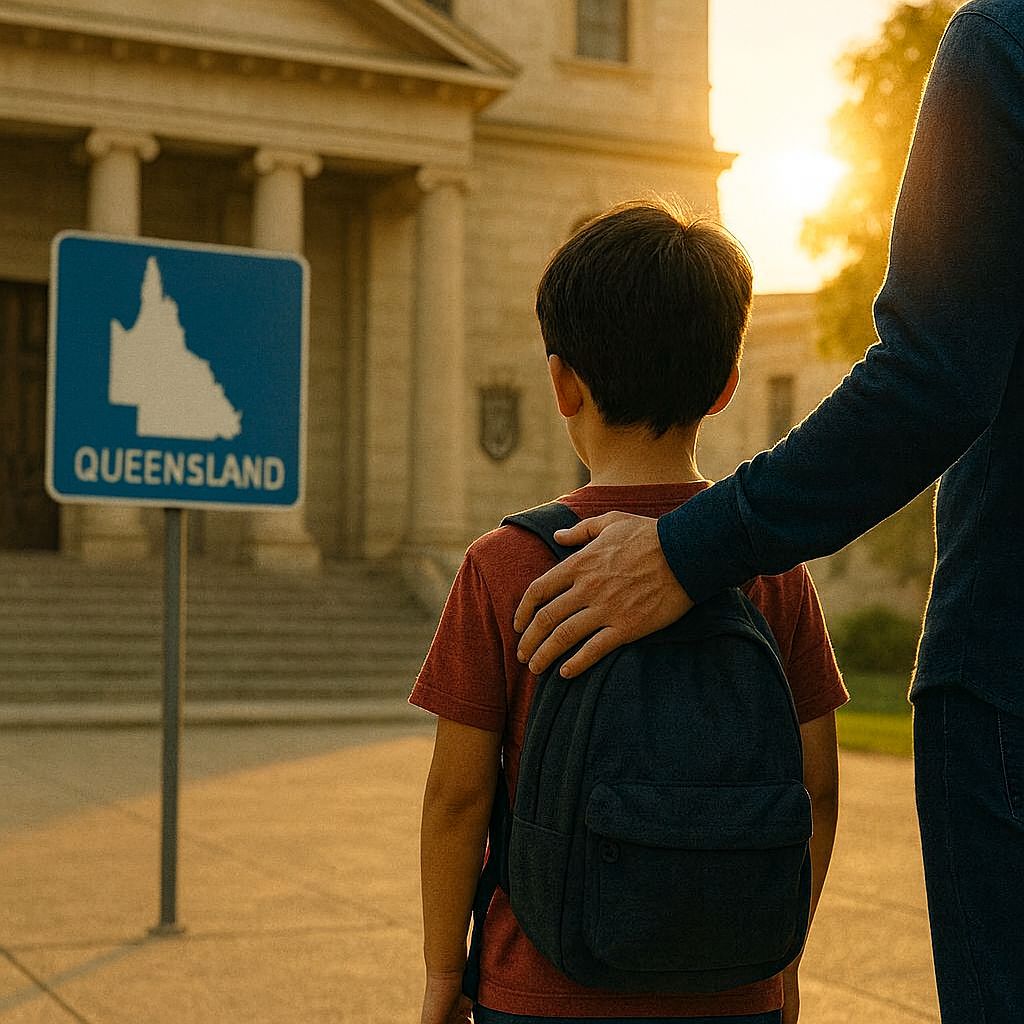Being accused of a sexual offence in Queensland – whether in Brisbane, the Gold Coast, or anywhere else – is a life-altering event. You may feel shock, fear, or anger, but it’s critical to stay focused and take immediate action to protect your rights. Remember that under Australian law you are presumed innocent until proven guilty.
This guide lays out step-by-step, practical actions to take right away if you find yourself accused of a sexual offence. Each step is designed to safeguard your legal position and set the foundation for a strong defence, all while navigating the process in a calm and orderly way, guided by us as your experienced legal representatives (remove if not posting on my website).
1. Stay Calm and Composed
Take a deep breath and resist the urge to panic or react impulsively. Being accused of a sexual crime is extremely stressful, but your immediate behavior can profoundly affect the outcome of your case. Do not yell, lash out, or make public statements in anger. Remaining calm will help you think clearly and avoid mistakes.
In these early moments, focus on understanding the situation. Who is making the accusation, and what exactly are they alleging? You might learn of the accusation from police contacting you, from rumors, or directly from the accuser. Listen or read carefully, but do not respond with detailed comments or explanations yet.
2. Exercise Your Right to Remain Silent
One of the most important rights you have in this situation is the right to remain silent. In Queensland, this right is protected by law – specifically, it’s codified in the Police Powers and Responsibilities Act 2000 (Qld). You are not obligated to answer any questions about the allegations. This right to silence is a fundamental safeguard for the accused, ensuring that the burden remains on the prosecution to prove the case beyond reasonable doubt.
Do not give police any statements or interviews without a lawyer present. Do not speak with your accused on the phone or by text message. It is very common for people to think they can explain a misunderstanding or prove their innocence by talking – unfortunately, this often backfires. Police officers and detectives are highly trained in interrogation; in a stressful moment you might say something that is misremembered, taken out of context, or inadvertently incriminating. Police also try to get confessions by secretly recording a phone call between you and the alleged victim, to use against you in court.
3. Contact an Experienced Criminal Lawyer Immediately
Do not delay in this step – time is critical. An experienced criminal defence lawyer (especially one who regularly handles sexual offence cases in Queensland) will guide you from this early crisis phase and protect your rights at every step.
For instance, George Criminal Lawyers (based in Brisbane and serving Queensland) focus on criminal defence and have handled hundreds of sexual offence matters, meaning they understand the nuances of these cases. A seasoned lawyer will know how police and prosecutors operate in such cases and can preempt common pitfalls.
Why involve a lawyer so early? First, your lawyer can communicate with police on your behalf. If police request an interview or attempt to gather evidence from you, your lawyer can manage those interactions or advise you on how to respond. In some cases, your lawyer might engage with the police to understand the status of the investigation or negotiate terms of your release if you’ve been arrested. Second, a lawyer will start building your defence immediately – gathering evidence (or advising you how to), securing witness statements, and ensuring that favourable evidence isn’t overlooked. They’ll also advise you on immediate do’s and don’ts (many of which echo what’s in this guide, such as “don’t contact the accuser”). Lastly, a lawyer provides you with a buffer and peace of mind. Once you have legal counsel, you can direct all inquiries to them. This takes pressure off you and reduces the chance of you saying or doing something detrimental to your case.
Tip: When you call a lawyer, be cautious if that call is from a police station phone – assume it might be recorded. Simply state you need representation for an urgent matter. Better yet, memorise or have quick access to the number of a trusted criminal lawyer in advance (many firms have 24-hour emergency lines for situations like arrests). If you’re unable to immediately secure a private lawyer, consider calling Legal Aid Queensland for interim assistance. The bottom line is: do not navigate this alone. From the moment you have a lawyer, the dynamic shifts – you have a professional advocating for you, which can prevent missteps and protect your rights.
4. Avoid Contact with the Accuser or Witnesses
When accused of a sexual offence, do not – under any circumstances – contact the person accusing you or any potential witnesses in the case. You might be tempted to reach out, perhaps to proclaim your innocence, demand an explanation, or even apologize if you think there’s been some misunderstanding. Such contact can severely harm your situation. It could be construed as intimidation, harassment, or an attempt to influence the other person’s account. In Queensland, interfering with a witness or accuser can lead to additional criminal charges or bail being denied/revoked if interpreted as witness tampering (called “attempting to pervert the course of justice”).
What if the accuser tries to contact you? They might attempt to provoke a reaction or obtain an apology from you. Do not engage. If you receive any messages, save them (they could be evidence), but do not reply. Inform your lawyer immediately about any contact initiated by the accuser or their associates. Your lawyer can handle it through the proper legal channels.
5. Preserve Evidence and Write Down Your Account
While you should not talk to others about the details, it is crucial to quietly start preserving any evidence that could support your defence. Over time, memories fade and digital data can be lost – you want to secure helpful information while it’s fresh. Here’s what you should do:
- Write down your recollection of events as soon as possible, in a factual and detailed manner. Include dates, times, locations, who was present, and exactly what you remember happening. This personal account will help your lawyer understand your case and identify leads.
- Identify any evidence in your possession that could be relevant. For example, do you have text messages, emails, social media DMs, or voicemails from the accuser? These might show your interactions, possibly even proving your innocence or casting doubt on their story. Save them (screenshot important texts, download copies of emails, etc.) and back them up in a secure location.
- List potential witnesses or alibis. Were you with someone at the time of the alleged incident who can confirm your version of events? Did someone observe interactions that are now being mischaracterised? Write down their names and contact information (if you have it). Again, do not approach them yourself. Provide the list to your lawyer so that they can decide how and when to obtain statements if appropriate. Witnesses might include friends, co-workers, bystanders, or anyone relevant. Your lawyer or a professional investigator can later take formal statements. For now, your job is to recall and record who might help corroborate your story.
- Preserve physical evidence if applicable. In some cases, physical evidence can be critical (for example, clothing, bedsheets, photographs of the scene, etc.). If you believe any item or location might have evidentiary value (whether to support your innocence or even to rebut the details of the allegation), tell your lawyer. They can advise whether to secure those items or have an independent forensic examination done. Do not tamper with or clean anything that could be evidence; store it safely as is.
By quietly collecting and preserving defence evidence, you’re helping ensure that crucial information doesn’t disappear. Gather these puzzle pieces now, and hand them to your lawyer. You’ll strengthen your defence while also demonstrating that you’re taking the situation seriously and proactively defending yourself (which can be psychologically empowering during an otherwise helpless feeling time).
6. Understand the Seriousness of the Charges
Facing a sexual offence accusation means you’re up against some of the harshest penalties in Queensland’s criminal law. It’s important to grasp just how serious these charges are – not to scare you, but to underscore why following these steps and mounting a strong defence is absolutely critical.
Under Queensland’s Criminal Code, sexual offences encompass a range of crimes – from rape, to sexual assault, to offences involving minors (such as indecent treatment of a child, grooming, or maintaining an unlawful sexual relationship with a child (repeated sexual conduct with a child). All of these are treated severely:
- Rape – legally defined as any form of non-consensual penetration of the vagina, anus, or mouth – is punishable by life imprisonment. This is the maximum penalty, reflecting that Queensland law views rape on par with the most serious offences in the criminal justice system.
- Sexual Assault – which generally refers to unlawful, indecent physical contact without consent (but not amounting to rape) – carries a maximum of 10 years’ imprisonment in its basic form. However, circumstances of aggravation sharply increase the potential penalty. For example, if the assault involved the offender’s mouth or the victim’s genitals, the max jumps to 14 years; if it was done in company with another person or while armed, or if it or involved procuring any form of penetration, it can be treated as an aggravated sexual assault punishable by life in prison. In short, even what might sound like a “lesser” sexual offence can escalate to a life sentence if certain facts are present.
- Offences involving minors (under 16 in Queensland) – such as indecent treatment of a child or child sexual abuse material – also carry very heavy penalties (often 10 to 20 years or more, depending on specifics). Moreover, consent is not a defence when the alleged victim is below the age of consent (16). A person convicted of a child sex offence will also almost certainly be subject to strict reporting requirements and placement on the sex offender register (Queensland’s reportable offenders scheme), which can restrict one’s freedom and employment long after any jail term is served.
Given these stakes, courts treat sexual offence cases with a gravity that often results in real jail time upon conviction. In fact, because sexual offences are classified as violent crimes against a person, Queensland courts are not required to treat imprisonment as a last resort – meaning there is a strong likelihood of incarceration if you are found guilty.
7. Comply with Bail Conditions and Legal Procedures
If you have been arrested and charged, one of the first legal hurdles will be bail. In Queensland, after being charged with an offence, you have the right to apply for bail (either through the police or the courts). Bail is essentially your release from custody on the promise to appear in court and abide by certain conditions.
For serious offences like rape or other sexual crimes, bail is not automatic – the court will consider factors such as the severity of the offence, your criminal history (if any), risk of reoffending, risk of interference with witnesses, and likelihood of you appearing for court dates. It is possible the prosecution will oppose bail in a serious sexual case, especially if they deem you a flight risk or a danger to the community.
If you are granted bail, you will likely have a set of conditions to follow. Common bail conditions in sexual offence cases include: not contacting the complainant (and sometimes certain other individuals), not going near certain locations, residing at a fixed address, curfews, reporting to a police station periodically, and abstaining from drugs/alcohol. In some cases, you might be required to provide a surety or comply with electronic monitoring.
It’s absolutely critical that you understand and obey every single bail condition without fail. A breach of bail not only can get you immediately arrested and put in jail until trial, but it could also undermine your credibility in front of the court. Showing the judge that you’re responsible and compliant can only help your case. So if your bail says “no contact,” don’t test it even with an indirect message; if it says stay 100 meters away from the accuser’s home or workplace, map out those exclusion zones and avoid them diligently.
Prepare for the legal process ahead. Sexual offence cases typically run through several stages: mention/first appearance, committal proceedings (if it’s an indictable offence, which most sexual offences are, a committal in the Magistrates Court will determine if there’s enough evidence for trial), and then if committed, trial in a higher court (District Court for most). Your lawyer will keep you informed of each date and what it means. Attend every required court date when directed to do so – missing a court appearance can lead to a warrant for your arrest and forfeiture of bail.
Finally, be mindful of your online presence generally. If the matter does become public, sometimes internet sleuths or media might comb through your past posts or profiles for anything incriminating or embarrassing. You might want to increase privacy settings or even temporarily deactivate social media accounts to avoid any misinterpretation of old content. Most importantly, do not engage in any online arguments or commentary about related topics. For example, if the allegation is about sexual misconduct, don’t participate in discussions or make jokes online about consent, assault cases in the news, etc. – those could later be used to paint you in a bad light or even as character evidence. Laying low digitally is part of protecting yourself legally.
Conclusion
If you or your loved one in Queensland is facing a sexual offence allegation, reach out for professional help immediately. At George Criminal Lawyers, we have extensive experience guiding clients through precisely these situations with discretion, skill, and determination. We understand the Queensland legal landscape and are prepared to fight tenaciously for your rights and your innocence. Every case is different, but our commitment to fierce representation and honest advice remains the same.
Action, not inaction, is your ally right now. By implementing the steps outlined in this guide, you’re taking action – safeguarding your rights, building your defence, and coping with the personal impact in a healthy way. The road may be tough, but you don’t have to walk it alone. With the right legal team and support system in your corner, you can confront this accusation head-on. Stay strong, stay smart, and above all, remember that immediate proactive measures can make all the difference in protecting your future.re






